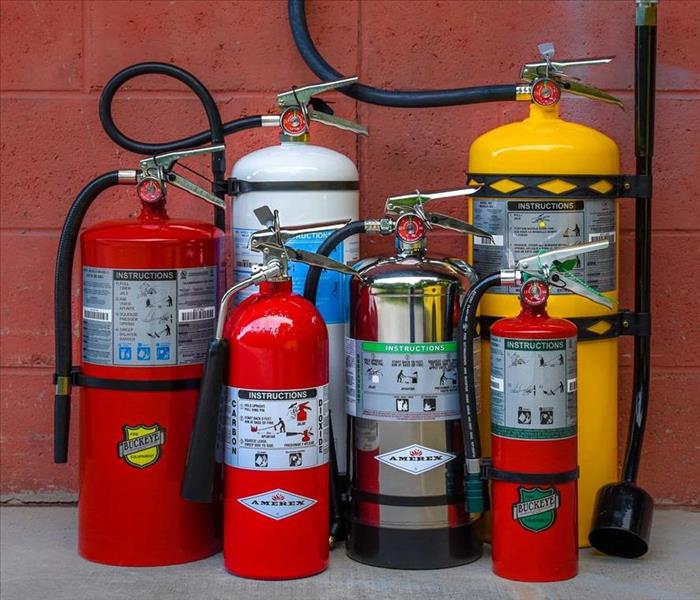Did You Know? – The Fire Extinguisher Edition
5/26/2021 (Permalink)
It is well known that having a working, in-date fire extinguisher on your property is imperative for fire safety preparation. Many commercial properties require annual fire extinguisher inspections, and that team members receive training on the location of the extinguishers. Did you know, though, that there are different kinds of fire extinguishers AND that there is a proper way to use this device? Learn more about these fire extinguisher details below:
Q: What are the different kinds of fire extinguishers, and what is each used for?
A: The U.S. Fire Administration defines five primary types of fire extinguishers used to put out different kinds of fires:
- A – used for ordinary material fires, such as wood, cloth, or paper.
- B – for use with combustible or flammable liquids like grease, gasoline, or oil.
- C – for use with electrical equipment like appliances and tools.
- D – for use with flammable metals.
- K – for use with animal oils, vegetable oils, and fats in cooking appliances.
Many fire extinguishers may also be multipurpose, in that they carry multiple letter definitions and can put out a variety of material fires. Having the right fire extinguisher for the materials within your structure is very important in limiting the amount of damage sustained, as well as ensuring safety for occupants.
Q: What is the proper way to use a fire extinguisher?
A: The U.S. Fire Administration suggests the acronym “PASS” as a means of properly discharging a fire extinguisher:
P - Pull the pin. Hold the extinguisher with the nozzle pointing away from you and release the locking mechanism.
A - Aim low. Point the extinguisher at the base of the fire.
S - Squeeze the lever slowly and evenly
S - Sweep the nozzle from side to side
ALWAYS use extreme caution when inside of a fire damaged structure and follow the guidance of local fire authorities. If your property has suffered fire damages, know that SERVPRO of North Pensacola is Here to Help. We offer 24/7 emergency response, and have the training, equipment, and expertise to safely clean and remediate the damages. To learn more or schedule service, give us a call at 850-466-3076.






 24/7 Emergency Service
24/7 Emergency Service
